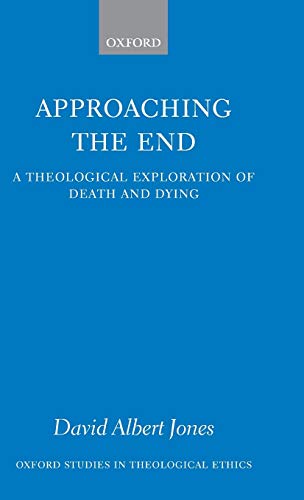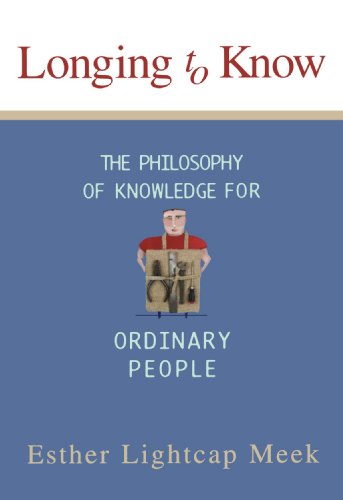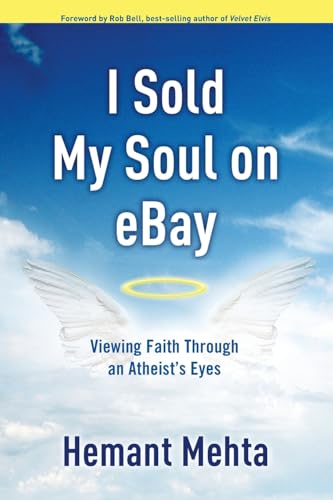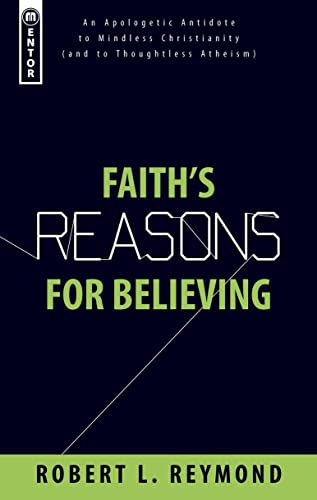Calvin, Participation, and the Gift: The Activity of Believers in Union with Christ
Written by J. Todd Billings Reviewed By David GibsonThis fine study locates Calvin’s theology of participation in Christ in the context of contemporary systematic theologies of the ‘Gift’. These theologies have become significant, drawing as they do ‘upon an interdisciplinary discussion of gift giving to reconfigure the relation of divine giving (in creation and redemption) to human giving (self-giving love)’ (p. 2). Within such discussions, Calvin has figured prominently because his view of God is taken to be ‘the textbook example of a “unilateral gift”—a one sided gift that evacuates human agency as it claims the receiver’ (p. 2). Such critiques of Calvin often overlap with corresponding critiques of Calvin by Eastern orthodox and feminist theologians. Billings engages the challenges head-on by providing an extremely well-informed exposition of Calvin’s doctrine of participation and its vital relationship to the activity of those united to Christ.
The book consists of six chapters. The first chapter delineates the nature of the criticisms laid at Calvin’s door by the ‘Gift’ theologians. The interdisciplinary nature of the case is explained, with insights coming from Marcel Mauss and Jacques Derrida to create different portraits of ‘the Gift’ which have been taken up into theological discourse. ‘Radical Orthodoxy’ features prominently here, with leading figures such as John Milbank and the rejection of a concept of ‘free’ or ‘unilateral’ gift of ‘excess’. Such conceptuality in the theological realm ‘is said to demean human agency and reciprocity; in a word, it undercuts human participation in the divine gift’ (p. 8). It is in this light that Calvin suffers severe criticism from Milbank: his theology of imputation and his forensic account of justification ‘undermines the “active reception” that constitutes a soteriology of participation in which human beings actively reciprocate’ (p. 9).
The next four chapters provide us with a reading of Calvin which responds to the critiques. Chapter Two gives an account of Calvin’s training and context, as well as placing him in broad continuity with the Fathers on the theme of participation in Christ. Chapter Three traces Calvin’s actual language of ‘participation in Christ’ from 1536 through to the final 1559 edition of the Institutes with attention given to the highly significant structural influence of his Romans commentary on his developing thought, as well as to the controversies of the 1550s. Chapter Four in many ways functions as the heart of the book with a clear explanation of a duplex gratia (‘double grace’) motif in Calvin’s thought: justification (first grace) and sanctification (second grace) function as distinct yet utterly inseparable aspects of union with Christ. Billings traces the influence of the duplex gratia on Calvin’s theology of prayer and the sacraments to show that at times even in the first grace, and invariably always in the second, the human agent is not best described as passive and unreceptive. Chapter Five explores Calvin’s theology of the law in relation to participation in Christ and argues convincingly against Milbank that ‘love is placed at the very centre of Calvin’s view of the Christian life’ (p. 184). In the concluding chapter, Billings shows how his material answers seven main criticisms levelled against Calvin by ‘Gift’ scholars. Here the biblical and catholic promise of Calvin’s position is outlined.
The book succeeds admirably as a response to the critiques of Calvin made by ‘Radical Orthodoxy’ and by others such as Stephen H. Webb. It does so not because Billings always aims to show Calvin as equal to their criticisms on their terms, but because he rightly points out that there is often a ‘hidden ledger’ for evaluating Calvin: a Thomist account of ‘participation’; or a Byzantine concept of ‘deification’; or a Maussian/Derridean concept of ‘reciprocity’. ‘In general, there is imposition of external criteria upon Calvin’s theology, and Calvin is found to fall short of the standard at hand’ (p. 15). Billings lets Calvin speak on his own terms so as to contribute something distinctive to the discussion; by exploring his thought so carefully in different polemical as well as historical contexts, Calvin’s doctrine of participation is seen to be theologically rich, nuanced, and not quite what many of his critics think it is.
Billings shows that ‘Calvin’s theology of participation emerges from a soteriology which affirms a differentiated union of God and humanity in creation and redemption’ (p. 16). Calvin has an account of divine agency which ‘enables, rather than undercuts, human agency in sanctification’ (p. 17). As part of this, Billings mediates well between competing interpretations of Calvin which set the forensic elements of his thought against the organic images of participation, adoption and engrafting. Instead of the false antithesis, we see that Calvin holds a forensic account of justification in perfect harmony with the transformative images of justification’s effects. Another excellent part of Billings’ case is his treatment of the criticisms of Calvin’s ‘negative anthropology’ (p. 43). These are shown to rest on misunderstandings of Calvin as much as anything else. Calvin’s account is biblically grounded in the fall so that for him the substance of human nature as created by God is good, while it is the corruption accidental to human nature which draws his negative language. Useful explanations like this recur throughout the book.
There are a number of ways in which this book might have strengthened its argument. First, there is always a danger in a study such as this of imposing foreign categories on Calvin’s thought so as to use it for ends other than Calvin intended. Billings himself is alive to the issue (pp. 18–19); indeed, so much so that overall his work is a sound model of how to contextualize Reformation theology in a contemporary context so that the latter appropriates meaning from the former instead of attributing meaning to it. Nevertheless, to handle themes from, say, Calvin’s Institutes, and to use them in a way which is a step removed from the structural argument of the Institutes as a whole is potentially precarious. For example, the use of the duplex gratia concept, with the repeated refrain of ‘first grace’ (justification) and ‘second grace’ (sanctification), faithfully renders aspects of Calvin’s ordo salutis (order of salvation). There is no discussion, however, of the striking fact that in Book 3 of the Institutes Calvin actually treats sanctification before justification, precisely because it is a situated argument against Rome about the very nature of faith itself. The scholastic distinction between the ordo salutis and the ordo docendi (order of teaching) enables us to see that Calvin’s argument here points in a very particular direction, even while he maintains a causal relationship between justification and sanctification. This structural fact in itself might contribute nuance of a different kind than Billings provides when we speak of human agency in Calvin’s understanding of sanctification. And it might also strengthen Billing’s case by showing, from a different angle, the inseparability of justification and sanctification in Calvin’s thought.
Second, the brief discussion of the potentia absoluta and potentia ordinata distinction is too brief to be convincing. Billings states that ‘this formal distinction is explicitly rejected by Calvin’ (p. 33), but others have argued in great detail that what Calvin rejects is not actually the distinction itself but rather one form of it (cf. Paul Helm, John Calvin’s Ideas, pp. 312–46).
Third, given that Billings rightly follows Muller in seeing the massive influence of Calvin’s Romans commentary on his ‘Pauline-ordered approach to the loci of theology’ from 1539 onwards (p. 77), it would have been fruitful to interact with Stephen Edmondson’s recent work. Edmondson has argued that Muller’s Pauline ordo needs to be aligned with a recognition of the structural influence on Calvin’s theology of his commentaries on the Old Testament and Gospels published throughout the 1550s. (Edmondson makes this case in his Calvin’s Christology, pp. 43–48, but see also ‘The biblical historical structure of Calvin’s Institutes’, SJT 59:1 [2006]: 1–13). This work might supplement Billings’ clear reliance on a Pauline-influenced form of the participation theme with the significant Johannine (and other) influences on the theme that must have been present in Calvin’s development. It is because Billings is so attentive to historical development and interdependence in Calvin’s thought that this point deserves some consideration.
Finally, it should be noted that Calvin’s doctrine of predestination and election affords an opportunity to strike right at the presuppositional heart of the Calvin criticisms which this book deals with. Billings sees that in many of the critiques there are echoes of the old ‘predestination-as-central-dogma’ charge against Calvin (p. 2), and it is Calvin’s ‘doctrines of imputation and, by extension, predestination’ which are alleged to render the human agent passive (p. 12). This study is restricted largely to the loci which explicitly make use of participes terminology and should not be criticised for that—one book simply cannot cover everything. But Calvin’s doctrine of election is replete with the conceptuality of participation—see, for instance, his commentary exegesis of John 16:27; 17:3, 23. As Billings records, many pit a transaction by God carried out on our behalf against incorporation into the Son to achieve reconciliation with the Father (p. 10), but a reading of Calvin on these verses shows that union with Christ shines brightly in the very domain regarded as the nadir of his thought. Further, in his comments on Ephesians 1:4, the duplex gratia is clearly at work when Calvin says it is ‘wicked to separate holiness of life from the grace of election’, and the former has to be seen to flow from and be the fruit of the latter. The doctrine of election itself is full of organic images and transformative metaphors which for Calvin adequately ground human agency.
None of these comments undermine Billings’ work. They are highlighted here to show the overall cogency and even wider ramifications of his argument. This book deserves wide circulation and will repay careful consideration across different fields of study.
David Gibson
David Gibson is the Minister of Trinity Church, Aberdeen, Scotland. He is author of Reading the Decree (T&T Clark, 2009) and co-editor of From Heaven
He Came and Sought Her (Crossway, 2013).
Other Articles in this Issue
Though his primary concern was how to persuade people from diverse backgrounds to embrace the gospel of Jesus Christ (1 Cor 9:12, 23), Paul, nonetheless, embodies a principle common to all who would provide leadership to a community comprised of a multiplicitous collection of rigid truth claims and behaviors...
The Ethnic Enemy—No Greek or Jew . . . Barbarian, Scythian: The Gospel and Ethnic Difference
by Keith FerdinandoWhatever 'globalisation' may be, it has been accompanied by insistent and sometimes violent affirmations of ethnic identity...
Despite a small flurry of attention over the past decade, Adolf Schlatter (1852–1938), Tübingen professor of New Testament and author of more than 440 written works, remains one of the most neglected yet illuminating theological voices of the past one hundred years...
Commentators have customarily interpreted Phil 2:12 as a reference to "working out" one's personal salvation...
Salvation History, Chronology, and Crisis:1 A Problem with Inclusivist Theology of Religions, Part 1
by Adam SparksA fundamental requirement in an inclusivist understanding of the relationship between Christianity and other religions is evidence of God's salvific activity outside of any knowledge of Christ...







